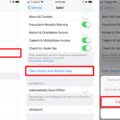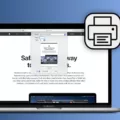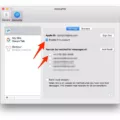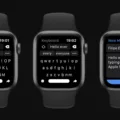Incognito mode, also known as private browsing, is a feature that is available in most web browsers. It allows users to browse the web without leaving any traces of their activity. While many people assume that private browsing ensures complete privacy and security, this isn’t always the case. To answer the question “Does Incognito Save History?” the answer is both yes and no.
When it comes to Incognito mode, some history is saved on your computer and mobile device. This includes your IP address and any cookies associated with the current website you are visiting. However, this history will not be shown in your browser’s history list or search bar when you close the window or tab.
In addition to this, websites can still track and save your activity while you are using Incognito mode. This means that regardless of whether or not your browser saves the data, websites such as Google still have access to it through their tracking software.
While Incognito mode does provide some privacy protection, it’s important to remember that it doesn’t guarantee complete anonymity or security while browsing online. Additionally, if you want to keep your online activities completely private and secure then a Virtual Private Network (VPN) may be a better option for you than simply using Incognito mode alone.
Overall, Incognito does save some history but not all of it and should not be considered an alternative for total security when browsing online.
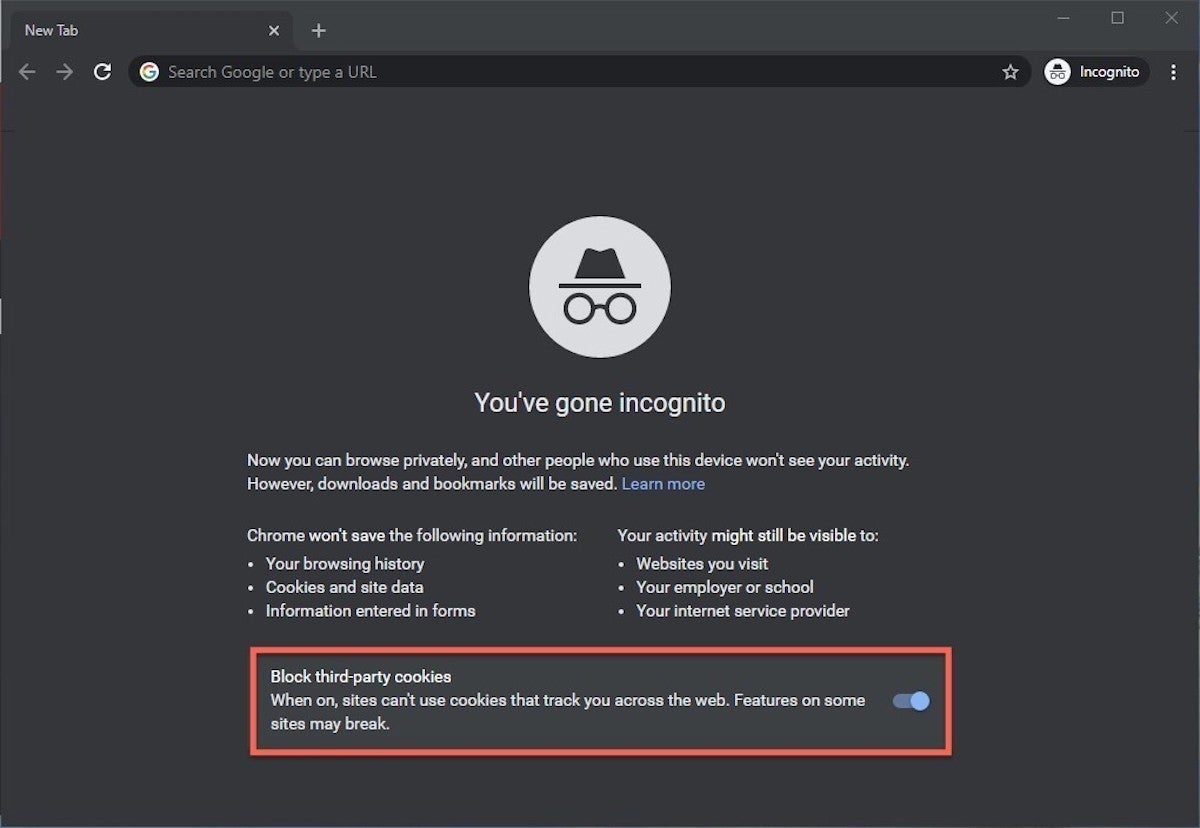
Viewing Incognito Browsing History
Yes, you can view your incognito browsing history. While there is no straightforward way to see the sites you visited incognito like viewing your history in your browser, there are tools available to recover data from your private browsing session. For example, the DNS cache can be used to check for data related to the sites you visited while using incognito mode. Additionally, there are third-party software programs that can be used to track and view your private browsing activity.
Deleting Incognito History
To delete your incognito history on Android, first, open the Chrome browser. Then tap the ‘Clear Host Cache’ button, which will delete your device’s DNS cache. Finally, close the Chrome browser to complete the deletion of your incognito history. Be aware that this only deletes your browsing history for that particular session; if you want to clear all of your incognito histories, you will have to repeat this process for each new incognito session.
Can Incognito Browsing History Be Recovered?
It is possible to recover Incognito history on Android phones, tablets, and iOS devices, but it is not an easy task. While there are some apps that claim to be able to do this, they are unreliable and can put your device at risk. The best way to guarantee the privacy of your browsing history is to use private browsers that do not store any browsing data on your device.
Can the WIFI Owner See What Sites I Visited in Incognito Mode?
Yes, a Wi-Fi provider can still see what sites you visit even when you are in Incognito mode. Incognito mode is designed to stop browsers and sites from storing cookies from your browsing session, but it does not hide your activity from your Wi-Fi provider. Your Wi-Fi provider can still see which websites you are visiting and what you are downloading. That being said, most Wi-Fi providers will not monitor or track your activity unless there is a specific reason to do so.
Disadvantages of Incognito Mode
The main disadvantage of incognito mode is that your IP address, identity, and browsing activity are still visible to third parties. This means that websites and ISPs can still track your activities, even though you’re in “incognito” mode. Additionally, any files you download or bookmarks you create while in incognito mode will still be visible on the device you’re using. It’s also important to note that incognito mode doesn’t protect you from malware or phishing attacks. Finally, some websites may still be able to collect data about your browsing habits, such as cookies or browser fingerprinting.
Does Incognito Mode Hide Browsing History From WIFI?
Using incognito mode can hide your browsing history from a particular device, such as a laptop or desktop, but it does not provide complete anonymity when using WIFI. While the browser in incognito mode won’t store any information about your browsing session on the device, the wireless router which is hosting the WIFI still logs this information. This means that even if you are using incognito mode, some of your browsing histories may remain on your computer and be accessible to anyone who has access to the router. To ensure complete anonymity while using WIFI, it is recommended to use a Virtual Private Network (VPN). A VPN encrypts all of your internet traffic and routes it through a secure tunnel meaning that no one can see what websites you visit or any other online activity you participate in.
Permanently Deleting Incognito History on an iPhone
Unfortunately, it is not possible to permanently delete incognito history on an iPhone. The best thing you can do is to clear your DNS cache regularly. To do this, launch the Chrome browser and enter the command chrome://net-internals/#dns in the address bar. From the side menu, choose DNS and go for the Clear host cache option. This will help purge any temporary data stored from your browsing sessions in incognito mode and should be done as often as possible. Additionally, iPhones also get rid of the DNS cache after every reboot and Airplane mode toggling which should be done periodically too.
Conclusion
In conclusion, while Incognito mode may offer some privacy protection, it does not provide complete anonymity. Your search history and other activities may still be visible to your internet service provider and any websites you visit. Additionally, using tools like the DNS cache or third-party software, your Incognito browsing history can be recovered. Therefore, it is important to remember that while Incognito mode may offer some privacy protection, it is not a foolproof method of secrecy.

